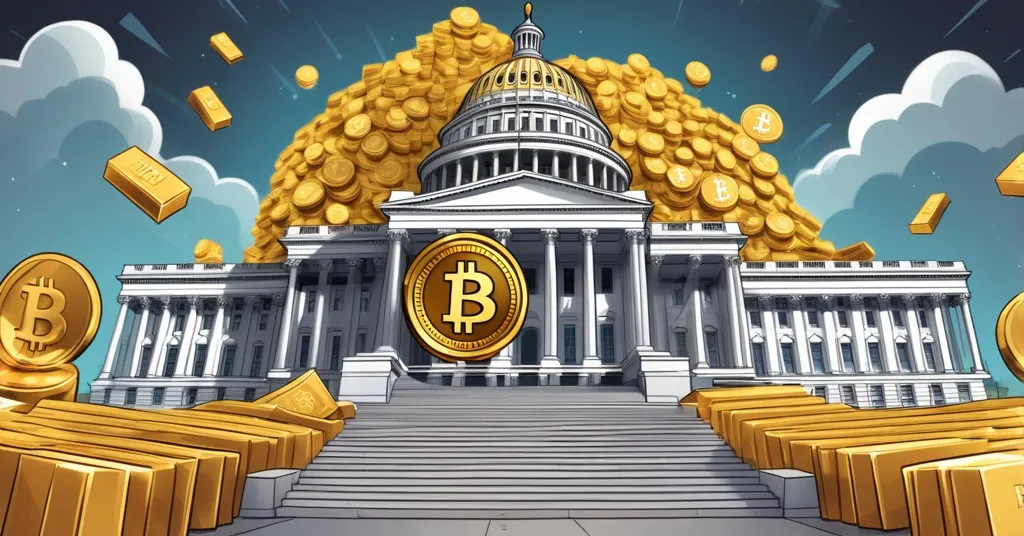New Hampshire’s HB302 Nears Senate Vote: Up to 5% of State Funds in Bitcoin

New Hampshire’s Bold Move: HB302 Paves the Way for State Investment in Bitcoin
New Hampshire’s House Bill 302 (HB302) is on the brink of reshaping the state’s financial landscape, allowing up to 5% of public funds to be invested in Bitcoin and precious metals. Having cleared four significant legislative hurdles, the bill is now set for a full Senate vote, sparking a nationwide dialogue on the role of digital assets in state investments.
- HB302 passed four major legislative stages
- Allows up to 5% investment in Bitcoin and precious metals
- Sparks debate on potential risks and financial gains
HB302’s journey began in January when it was introduced and has since navigated through the legislative process with notable support. It passed the House Commerce and Consumer Affairs Committee with a decisive 16–1 vote and secured approval from the full House on April 10 by a narrow margin of 192–179. The bill’s progress continued with a favorable 4–1 recommendation from its second Senate committee on April 23, inching closer to becoming law.
Under HB302, the state treasurer would be empowered to allocate up to 5% of public funds into Bitcoin and precious metals. Bitcoin stands as the sole digital asset meeting the bill’s stringent market capitalization criteria of over $500 billion, positioning it as the primary beneficiary of this investment strategy. The bill also emphasizes the importance of secure custody for these assets, outlining detailed provisions to ensure their safety. By “market capitalization,” we mean the total value of all the Bitcoin in circulation, and “secure custody” refers to the safekeeping of digital assets, akin to a high-security vault for your crypto stash.
The discourse surrounding HB302 reflects a broader tension between potential financial benefits and the inherent risks of investing in volatile digital assets. Republican Representative Jordan Ulery, a proponent of the bill, highlights the potential for significant financial gains, stating,
“The potential for a large amount of money being earned by the state through these investments.”
On the flip side, Democratic Representative Terry Spahr voices concerns about the risks, warning that
“It could jeopardize the long-term security of the state’s digital asset holdings.”
Investing in Bitcoin, with its notorious volatility, is like riding a rollercoaster designed by a mad scientist. It could soar to the moon or plummet faster than a lead balloon. Yet, for those who believe in the power of decentralization and the potential of Bitcoin as a hedge against inflation, it’s an exciting frontier.
If signed into law, New Hampshire would join Arizona and Texas as pioneers in state-level Bitcoin reserve legislation. Arizona’s SB 1373 is advancing towards a final vote, and Texas has already passed similar legislation, signaling a growing national trend towards integrating cryptocurrencies into state financial strategies. This move isn’t just about New Hampshire; it’s a testament to the broader movement towards recognizing the value and potential of digital currencies in state coffers.
As HB302 moves towards a full Senate vote, it’s not just about betting on Bitcoin; it’s about setting a precedent for financial innovation at the state level. However, with great power comes great responsibility, and the volatility of cryptocurrencies could stress state budgets if they become a significant part of state assets, according to financial analysts. The outcome of this legislative journey will not only impact New Hampshire’s financial strategy but could also influence other states grappling with the role of cryptocurrencies in their economies.
Looking ahead, should HB302 pass, it could encourage other states to explore similar digital asset investments, potentially influencing broader financial strategies across the U.S. If it fails, it might serve as a cautionary tale about the risks of integrating volatile assets into state reserves. Either way, New Hampshire’s bold move is a significant step towards the mainstream adoption of cryptocurrencies in the public sector.
Key Takeaways and Questions
- What is House Bill 302 (HB302)?
HB302 is a legislative proposal in New Hampshire that allows the state treasurer to invest up to 5% of public funds in Bitcoin and precious metals.
- What are the key stages HB302 has passed through?
HB302 has passed the House Commerce and Consumer Affairs Committee (16–1), the full House (192–179), and its second Senate committee (4–1).
- What are the arguments for and against HB302?
Proponents argue that the bill could lead to significant financial gains for the state, while critics warn that it could jeopardize the security of the state’s digital asset holdings.
- What other states have passed similar Bitcoin reserve legislation?
Arizona and Texas have passed Bitcoin reserve bills through one full legislative chamber.
- What are the potential financial implications of HB302?
There is potential for significant gains due to Bitcoin’s value growth, but also risks due to its volatility.
- How might HB302 influence other states or federal policies?
It could set a precedent for other states to explore digital asset investments, impacting broader financial strategies.



